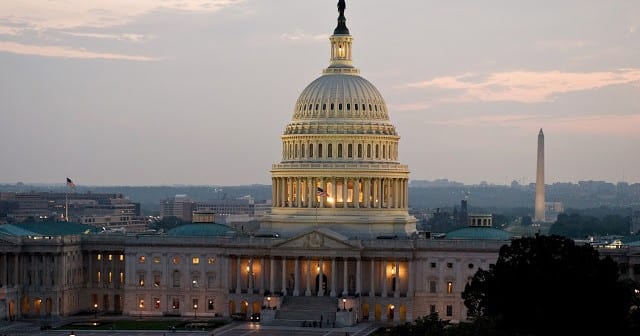On Monday, the United States Senate voted against debate on the Pain Capable Unborn Child Protection Act. The legislation would ban abortions on preborn children starting at 20 weeks’ gestation, the stage of development at which they undeniably feel the intense pain of the abortion procedure. Senate Democrats filibustered the life-saving bill, and Pro-Life Senators attempted to stop the filibuster. 48 Republicans and three Democrats voted to debate the bill on the Senate floor, failing to reach the 60 votes necessary to stop the filibuster.
Texas and several other Pro-Life states have already passed protections for pain-capable preborn babies. Texas Right to Life spearheaded the passage of this policy in the Texas Legislature in 2013 as part of the Pro-Life Omnibus Bill, House Bill 2. Despite abortion groups challenging other provisions of HB 2, they did not challenge the Preborn Pain Bill section. Clearly the abortion industry does not want to draw public attention to this legislation that highlights the humanity of preborn children. When anti-Life activists try to overthrow commonsense Pro-Life protections through the courts, Pro-Life advocates have successfully used the suits as a public platform for drawing attention to the preborn lives directly saved by those laws.
The more Pro-Life efforts such as the Pain Capable Unborn Child Protection Act gain national attention, the more people recognize the need for such life-saving laws. Although the failure of the United States Senate to pass protections for pain-capable preborn children is disappointing, the vote has brought increasing public awareness to the humanity of the preborn. Similarly, in the early 2000s, the federal Partial-Birth Abortion Ban succeeded after many failed attempts. Lawmakers passed the Partial-Birth Abortion Ban multiple times, only to have the bill vetoed by anti-Life President Bill Clinton. During those failed attempts, however, public sentiment changed. More people learned about the gruesome and barbaric way in which fully formed babies were killed in partial-birth abortions. Under increasing pressure from constituents, lawmakers again passed the Partial-Birth Abortion Ban in 2003, and President George W. Bush signed the bill into law.
In the wake of the latest failed attempt to pass the federal Pain Capable Unborn Child Protection Act, Pro-Lifers have the opportunity shape the cultural conversation around abortion. Highlighting the humanity of the preborn baby at 20 weeks can help to move public opinion in the direction of Life. Already, most Americans support banning late abortions. As Jeanne Mancini of the March for Life said, “This bill would have limited most late term abortions to protect approximately 12,000 unborn children every year. For over a decade, polling has shown that the large majority of Americans – including those who identify as pro-choice – would limit abortion to, at most, the first three months of pregnancy.” As more people understand that the preborn child is fully formed with a beating heart and the ability to feel the violence of abortion at 20 weeks, the more people will understand the sanctity of all human Life from the moment of conception.
The increasing public awareness of the Pain Capable Unborn Child Protection Act reinforces the humanity of the preborn and the reality that such legislation immediately saves thousands of lives. The bill also undermines the legal foundation of Roe v. Wade, paving the way to undoing the injustice of abortion in our nation. The more Pro-Lifers talk about life-saving legislation, the more people see how necessary the protection of all Life is. Share this article and speak out on behalf of the voiceless.


